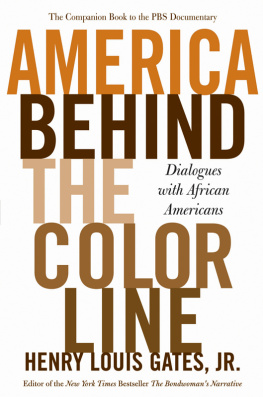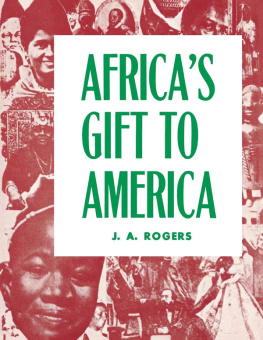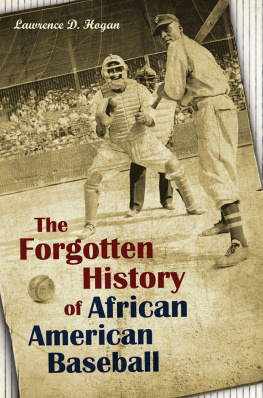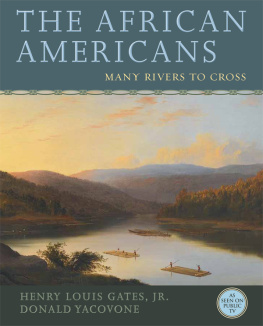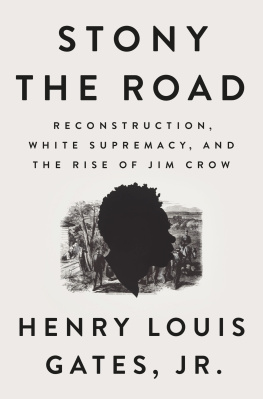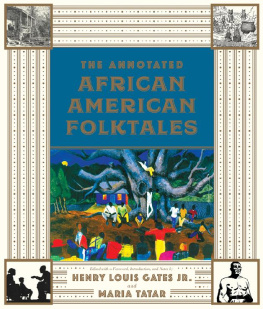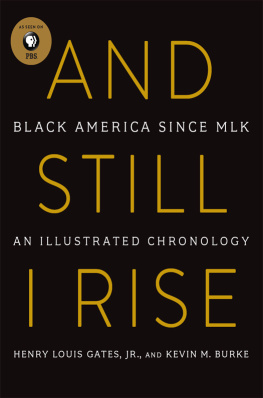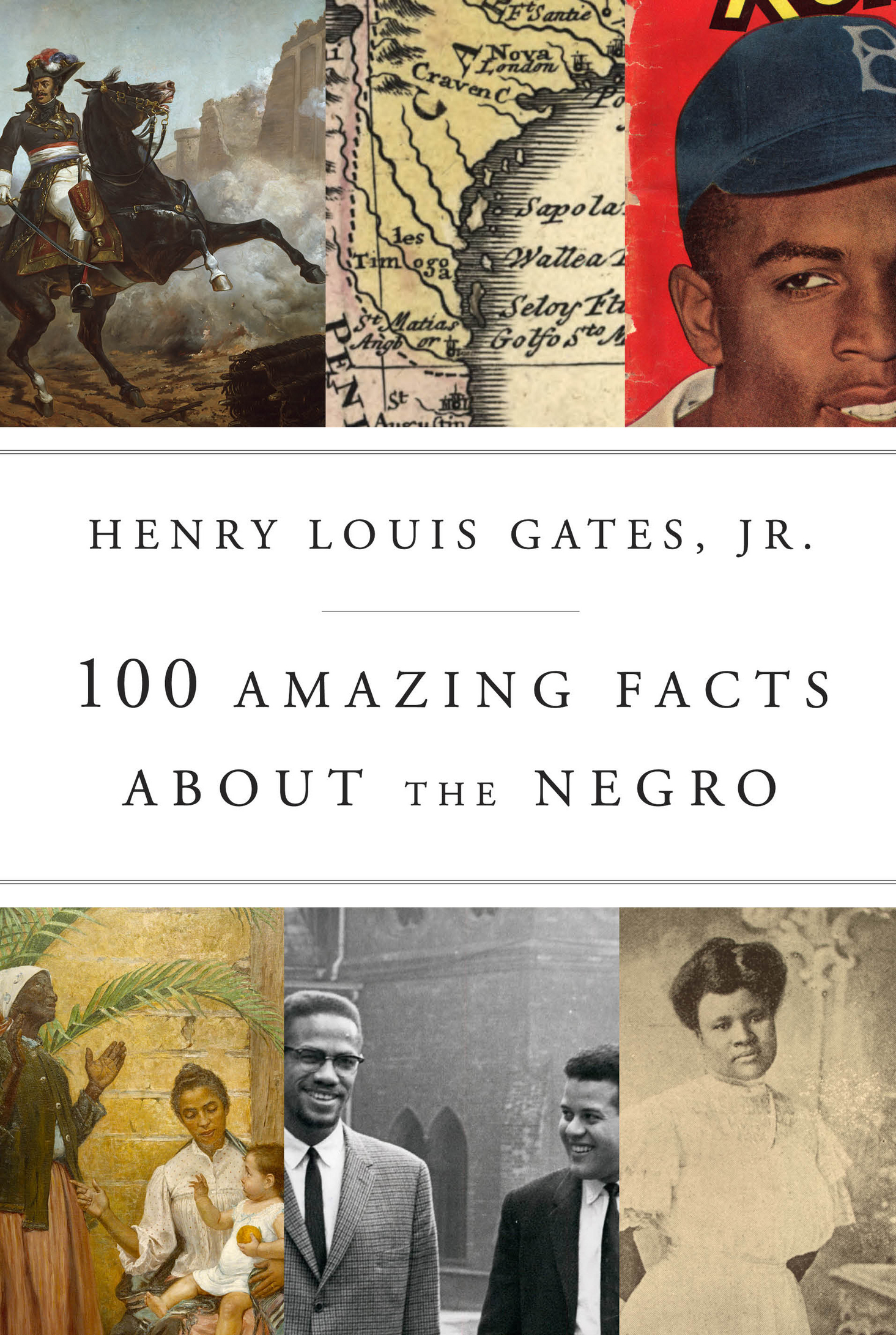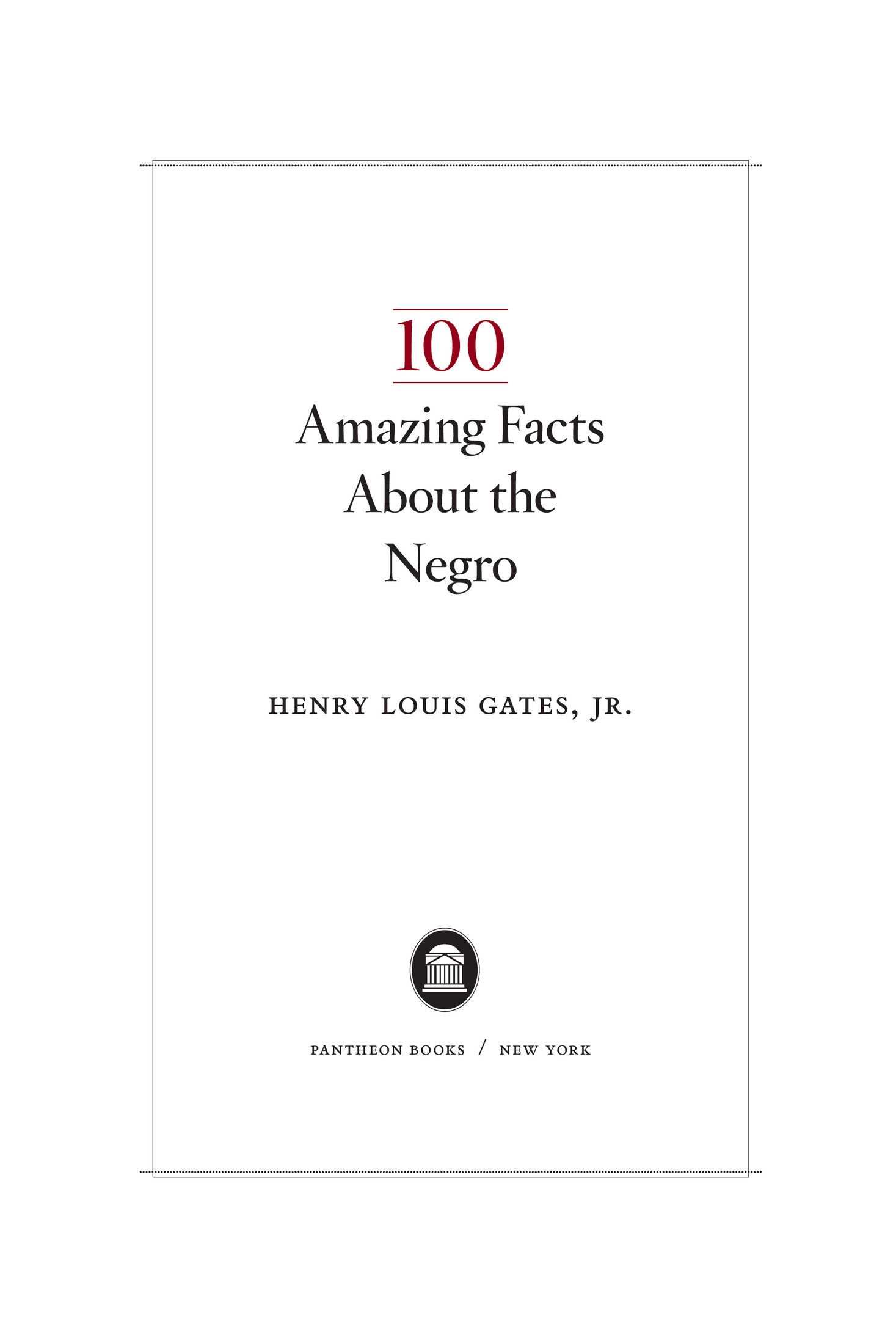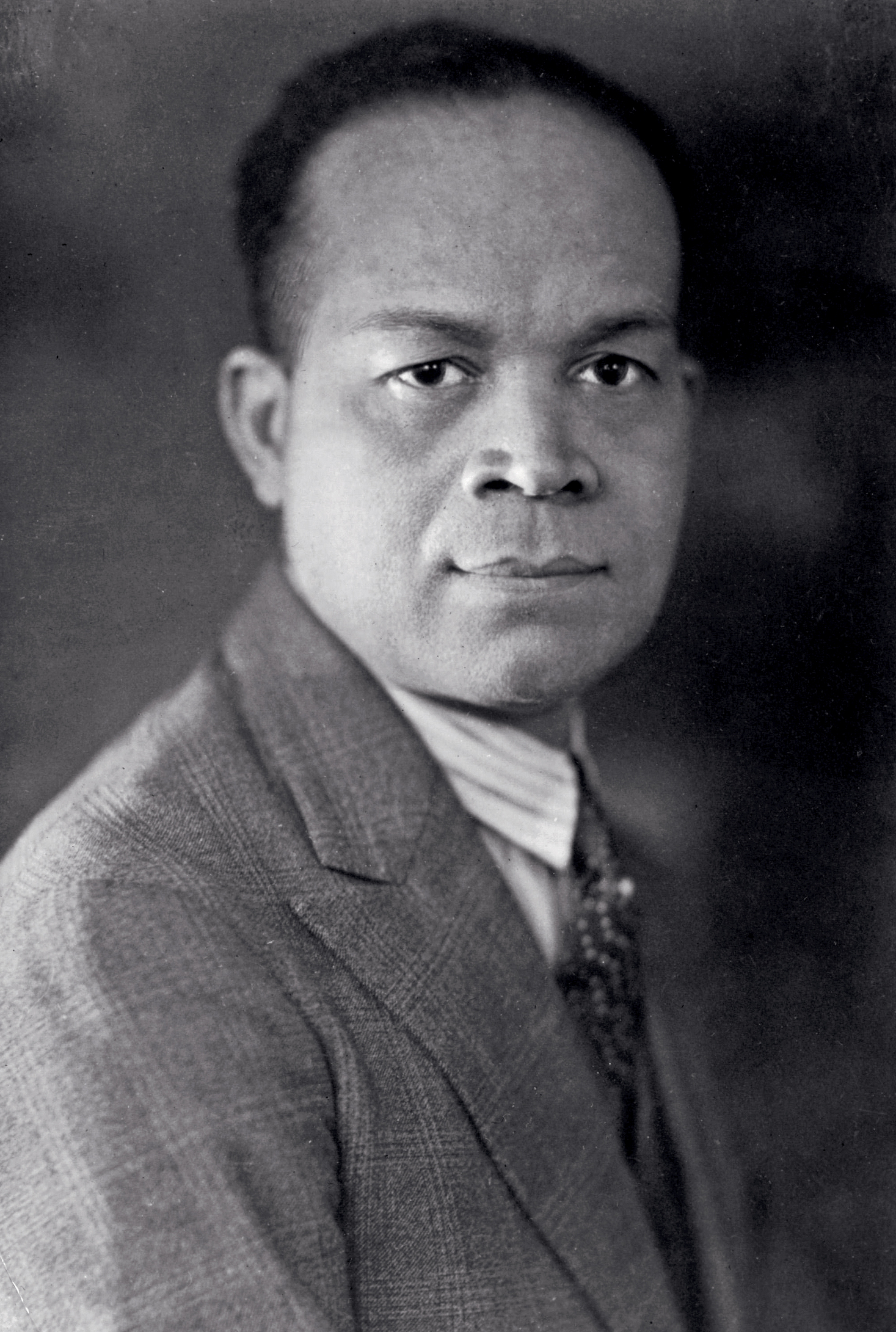ALSO BY HENRY LOUIS GATES, JR.
Finding Your Roots, Season 2: The Official Companion to the PBS Series
Finding Your Roots, Season 1: The Official Companion to the PBS Series
The Henry Louis Gates, Jr. Reader
Life Upon These Shores
Black in Latin America
Tradition and the Black Atlantic
Faces of America
In Search of Our Roots
Lincoln on Race and Slavery
Finding Oprahs Roots
America Behind the Color Line: Dialogues with African Americans
The Trials of Phillis Wheatley
Little Known Black History Facts
Wonders of the African World
Thirteen Ways of Looking at a Black Man
Colored People
Loose Canons
Figures in Black
The Signifying Monkey
WITH EMMANUEL K. AKYEAMPONG
The Dictionary of African Biography
WITH KWAME ANTHONY APPIAH
Encyclopedia of Africa
The Dictionary of Global Culture
Africana: The Encyclopedia of the African and African American Experience
Encarta Africana
WITH KEVIN M. BURKE
And Still I Rise: Black America Since MLK
WITH JENNIFER BURTON
Call and Response: Key Debates in African American Studies
WITH EVELYN BROOKS HIGGINBOTHAM
African American National Biography
WITH FRANKLIN W. KNIGHT
The Dictionary of Caribbean and Afro-Latin American Biography
WITH NELLIE Y. MCKAY
The Norton Anthology of African American Literature
WITH CORNEL WEST
The African-American Century
The Future of the Race
WITH DONALD YACOVONE
The African Americans: Many Rivers to Cross
Copyright 2017 by Henry Louis Gates, Jr.
All rights reserved. Published in the United States by Pantheon Books, a division of Penguin Random House LLC, New York, and distributed in Canada by Random House of Canada, a division of Penguin Random House Canada Limited, Toronto.
Pantheon Books and colophon are registered trademarks of Penguin Random House LLC.
Portions of this work originally appeared, in different form, in The Root (www.theroot.com).
Library of Congress Cataloging-in-Publication Data
Name: Gates, Henry Louis, Jr., author.
Title: 100 amazing facts about the Negro / Henry Louis Gates, Jr.
Description: New York : Pantheon Books [2017]. Includes index.
Identifiers: LCCN 2016024453 (print). LCCN 2016024539 (ebook). ISBN 9780307908711 (hardcover). ISBN 9780307908728 (ebook).
Subjects: LCSH : BlacksHistoryMiscellanea. African AmericansHistoryMiscellanea.
Classification: LCC CB 235. G 39 2017 (print). LCC CB 235 (ebook). DDC 973/.0496073dc23
LC record available at lccn.loc.gov/2016024453
Ebook ISBN9780307908728
www.pantheonbooks.com
Cover images: (top, left to right, details) Thomas-Alexandre Dumas by Olivier Pichat, akg-images; map of Spanish Florida and Jackie Robinson, both Library of Congress, Washington, D.C.; (bottom, left to right) The Redemption of Ham by Modesto Brocos y Gmez, akg-images; Malcolm X, Keystone Pictures USA/Alamy; Madam C. J. Walker, Library of Congress, Washington, D.C.
Cover design by Oliver Munday
v4.1
a
To Marial Iglesias Utset
Contents
Which journalist was among the first to bring black history facts to the masses?
FOR BLACK FAMILIES in the middle of the twentieth century, Mr. Rogers was a columnist for the legendary Pittsburgh Courier, and his pithy and always intriguing tidbits of African and African-American history armed them with facts about the black experience that seemed more like fantasies. Since students werent being taught anything about black people at school, Joel A. Rogers was just about the only source of black history that a few generations had.
The first edition of his now legendary 100 Amazing Facts About the Negro with Complete Proof, published in 1957, was billed as A Negro Believe It or Not, signifying on Robert Ripleys brain-bending series that had premiered in the New York Globe in October 1919. Rogerss little book was priceless because he was delivering enlightenment and pride, steeped in historical research, to a people too long starved on the lie that they were worth nothing because their ancestors had contributed nothing to world civilization. Deep in his bones, Rogers knew what a lie that was, and he used every ounce of creative energy he had to expose the twin fallacies on which it was based: racial purity and white supremacy. For African Americans of the Jim Crow era, Rogers was their first black history teacher. And he wrote to educate, with the black everyman and everywoman foremost in his mind.
Did he sometimes embellish what he had found? Yes; he wasnt above shock journalism. Did he miss key details? Absolutely. His style was brief and to the point, using a minimum of words and ambiguity so that the facts could speak for themselves.
Critics skeptical of Rogerss style dismissed him as a vindicationist for an aggrieved race, as Thabiti Asukile notes. And many of the subsequent ninety-nine chapters in this book will put Rogerss amazing facts to the test. Although he didnt bat a thousand, he consistently and tantalizingly raised questions about history that stimulated others to dig deeper. But he was as serious a researcher as they come, as serious as W.E.B. Du Bois and Carter G. Woodson. And when you study his life, you realize he wasnt just an aficionado of amazing facts. He was one of those facts.
Joel Augustus Rogers was born in Negril, Jamaica, on September 6, 1880, to Samuel and Emily (Johnstone) Rogers. When university study was precluded in the Caribbean, Rogers served for four years in the Royal Garrison Artillery.
A heart murmur may have kept him from serving overseas but not from traveling. As for looks, he was told he could pass for Cuban, but when he emigrated to the United States in 1906, it became clear that under the old one-drop rule, he was black. Thus he was relegated to the hard-luck side of the color line, a fact made all too clear when he was dissed at a restaurant in New Yorks Times Square.
Joel Augustus Rogers in 1936, soon after he began work on 100 Amazing Facts About the Negro.
After visiting Boston, Rogers made his way westward to Chicago, where the University of Chicago denied him admission because, in Asukiles words, he did not possess a high school diploma. From then on, Rogers knew that whatever he accomplished in life as a man of letters would have to be done without degrees.
Rogers was especially devoted to debunking the false religion of racial purity then being expounded in such racist texts as Thomas Dixons 1905 novel The Clansman, later adapted for the screen by D. W. Griffith in 1915s Birth of a Nation. The whole legal apparatus of segregation hinged on the illusion that whites and blacks could easily be identified, then rigidly categorized, so that any advantages in life were doled out only to those free of any (obvious) drops of African blood.







